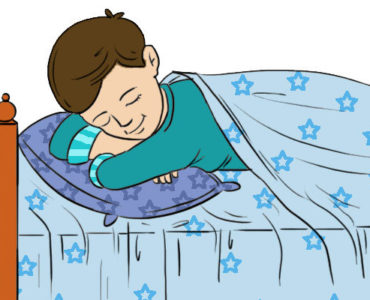Sleep is not a luxury. It is a necessity. It is vital for long term health and well-being.
It is as crucial as nutritious food and physical activity.
Yet in an effort to get things done many children who are juggling with academics, sports, extra- curricular activities and media usage, push down sleep lower in their list of priorities.
 What are the benefits of sleep?
What are the benefits of sleep?
Apart from the obvious benefits of feeling refreshed and energetic,
- Improved learning and memory
- Better focus, recall and problem solving ability
- Improved immunity
- Prevents weight gain
- Improved mood and behavior
- Decreased risk of self-harm and suicidal thoughts in teens.
- Keeps us alert and safe by preventing accidents at home, work or on the road.
- Decreases our risk for Type 2 diabetes mellitus, obesity, heart disease, stroke and hypertension.
We need to emphasize and reiterate the importance of sleep to children. Because good sleep habits established in childhood can make a big difference to health – lifelong.
How can we help children sleep better?
- Establish a bed time routine and stick to it.
- Try to stick to same bed-time and wake up time every day.
- Switch off all screens and gadgets half an hour before bed time
- Ensure the room is dark (or dimly lit) and quiet.
- Be a role model and get sufficient good quality sleep
How much sleep do children need (per 24 hours) on a regular basis?
| Age | Duration (per 24 hours) |
| 4-12 months | 12 to 16 hours of sleep (including naps) |
| 1-2 years | 11 to 14 hours (including naps) |
| 3-5 years | 10 to 13 hours (including naps) |
| 6-12 years | 9-12 hours |
| 13 -18 years | 8-10 hours |
Recommended by American Academy of Sleep Medicine in June 2016 and endorsed by American Academy of Pediatrics, the Sleep Research Society, and the American Association of Sleep Technologists.




